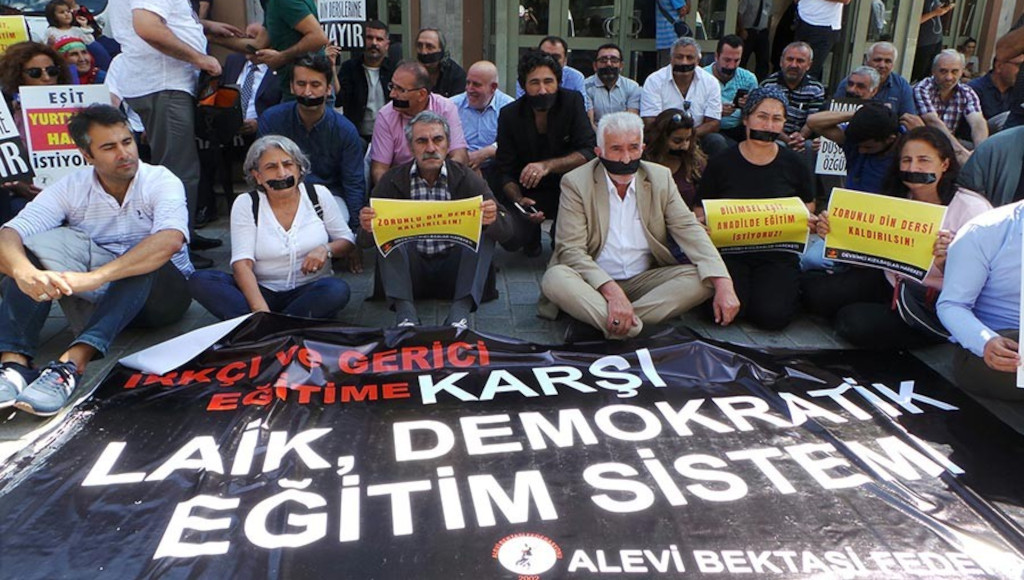Alevi organizations on Sunday staged demonstrations in several provinces of Turkey demanding that compulsory religion classes in schools be abolished and that cemevis, Alevi houses of worship, be officially recognized by the state, the Stockholm Center for Freedom reported, citing the Evrensel daily.
In a statement read out during a demonstration in Istanbul, Alevi organizations said the government was increasingly discriminating against Alevi communities. They called for the government to be democratic and ensure freedom, justice and equality.
Incorporating Shiite, Sufi, Sunni and local traditions, Alevism is a strain of Islam that emerged in the Middle Ages. Alevis are estimated to constitute between a tenth and a fifth of the Turkish population.
Turkey has long denied the demands of Alevis for state recognition, and cemevis are not officially recognized by the state.
The organizations said religious classes had been made compulsory with the 1982 Constitution, which was drafted after a military coup on September 12, 1980 and was ratified under military rule. The constitution is known for its restrictive approach to human rights; therefore, the organizations said it did not comply with democratic principles or the demands of society.
Compulsory religious classes have been criticized for only covering Sunni Islam and not giving place to other religious beliefs including Alevism. Moreover, these classes are offered to children as young as four years old. Families believe this is too young to understand abstract phenomenon such as “God,” “angels” and “prophets” and for children creates the impression that Islam is the only existing religion.
Alevi leaders have repeatedly expressed their concern that the situation of Turkey’s Alevi population is becoming increasingly precarious as the government of President Recep Tayyip Erdoğan has failed to fulfill its promise of granting them more rights to enable free practice of their beliefs and has imposed its own version of Islam on various segments of society.
The Turkish government had launched an initiative called the “Alevi opening” in 2009, aimed at achieving a better understanding of the problems of Alevis through a series of workshops and enacting reforms based on that understanding. Yet, the government failed to follow the recommendations in a report based on the outcome of the workshops and only took some symbolic steps. Such promises as officially recognizing cemevis and changing the law regarding compulsory religious education classes were not kept.
Moreover, hate crimes against Alevi communities are common. Cemevis have been occasionally vandalized, with curses and other insulting words put on their walls.

